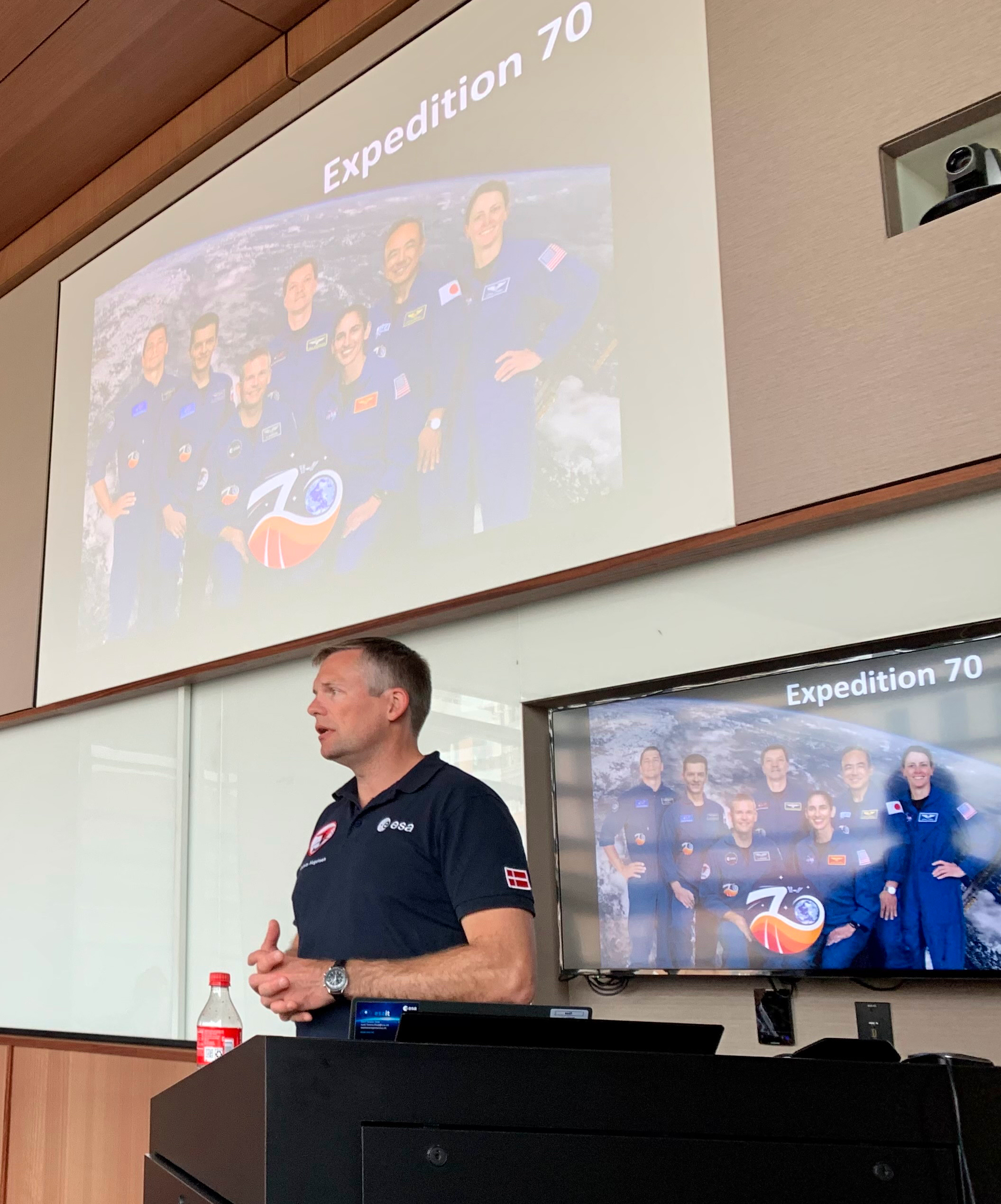Space station missions highlight importance of international collaboration
Danish astronaut Andreas Mogensen shares experiences from his recent seven-month stay on International Space Station
Key Takeaways:
- More than 20 years after hosting its first international crew, the International Space Station (ISS) continues its legacy of global collaboration, with nations including the U.S., Europe, Canada, and the United Arab Emirates participating in missions.
- These international partnerships on the ISS are critical to advancing scientific knowledge and research and show what’s possible when countries work together.
- The lessons learned through such space diplomacy will be increasingly valuable as humankind returns to the moon and endeavors to send astronauts to Mars in the future.
Floating 250 miles above the Earth on the International Space Station (ISS) provides a unique perspective on the challenges and geopolitical tensions humanity faces on the ground—and also the potential for space diplomacy to bring nations together, European Space Agency (ESA) astronaut Andreas Mogensen said during a recent Johns Hopkins Science Diplomacy Hub event.

“When you look down, you see continents. You can pinpoint where countries are, but you can’t see borders between countries,” said Mogensen, who served as commander of the nearly seven-month-long Expedition 70 that returned to Earth in late March. “You realize that we’re all just humans living on the same planet, and if we could learn to get along a little bit better and cooperate a little more, our challenges would disappear because they are self-made.”
Such cooperation in space is vital. While on board the space station, Mogensen worked with six international crewmembers to conduct numerous experiments ranging from climate science to human physiology to biology. The crew also had to deal with challenges including threats from space debris as well as regular maintenance on the nearly 25-year-old station, which Mogensen said took up nearly a third of their work hours.
The ability of crew members from different parts of the world to collaborate illustrates how such missions not only advance space exploration but are invaluable for enhancing scientific knowledge and building global partnerships.
“A key lesson from the space station is how much we can accomplish together if we pool our resources,” Mogensen said. “As astronauts, we see ourselves first and foremost as humans. We are a team with a common set of goals.”
The international friendships formed, coupled with the experience of seeing the vastness of the universe from the ISS, also left Mogensen and other crewmembers with the profound realization that there is no Plan B for humanity.
“It only takes us about an hour and a half to circle the Earth once, so you really get a feeling of the Earth as a single globe, not 195 different countries,” Mogensen said. “You get to understand that the Earth is not only our home but our only home. There is no back-up plan, no lifeboat to save us.”